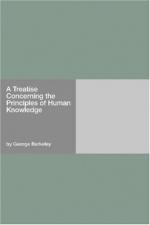119. Arithmetic has been thought to have for its object abstract ideas of Number; of which to understand the properties and mutual habitudes, is supposed no mean part of speculative knowledge. The opinion of the pure and intellectual nature of numbers in abstract has made them in esteem with those philosophers who seem to have affected an uncommon fineness and elevation of thought. It has set a price on the most trifling numerical speculations which in practice are of no use, but serve only for amusement; and has therefore so far infected the minds of some, that they have dreamed of mighty mysteries involved in numbers, and attempted the explication of natural things by them. But, if we inquire into our own thoughts, and consider what has been premised, we may perhaps entertain a low opinion of those high flights and abstractions, and look on all inquiries, about numbers only as so many difficiles nugae, so far as they are not subservient to practice, and promote the benefit of life.
120. Unity in abstract we have before considered in sect. 13, from which and what has been said in the Introduction, it plainly follows there is not any such idea. But, number being defined a “collection of units,” we may conclude that, if there be no such thing as unity or unit in abstract, there are no ideas of number in abstract denoted by the numeral names and figures. The theories therefore in Arithmetic. if they are abstracted from the names and figures, as likewise from all use and practice, as well as from the particular things numbered, can be supposed to have nothing at all for their object; hence we may see how entirely the science of numbers is subordinate to practice, and how jejune and trifling it becomes when considered as a matter of mere speculation.




